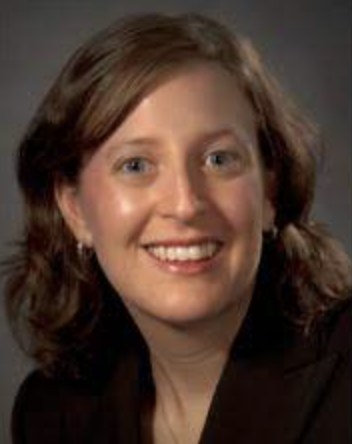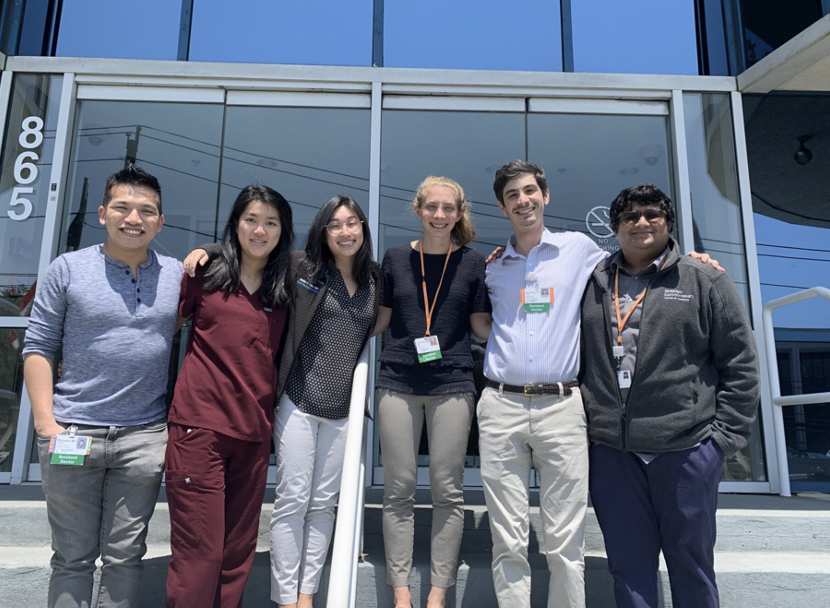Ambulatory
As a part of our 4+1 model, residents spend one week out of every five treating patients in an outpatient clinic either at the 865 Northern Boulevard clinic or the Medicine Specialties at Glen Oaks clinic. The goal of ambulatory training is to provide residents with a developmental experience that helps them to transform from medical school graduates to attending physicians ready for independent ambulatory practice.
Components of ambulatory training include:
Patient visits with a panel of patients that the residents follow longitudinally
Skill development in preventive care and management of acute conditions chronic conditions through both in-person visits and tele-health encounters
Experiences in inter-visit outpatient care
Work with inter-professional teams including physicians, nurses, medical office assistants, pharmacists, pharmacy coordinators, dietitians, and social workers
Leadership experiences managing these inter-professional teams
Educational conferences and quality improvement projects
-

Lauren Block, MD
ASSOCIATE PROGRAM DIRECTOR, DIRECTOR OF AMBULATORY EDUCATION
-

Jason Ehrlich, MD
ASSOCIATE PROGRAM DIRECTOR, MEDICINE SPECIALTIES AT GLEN OAKS CLINIC
-

Jennifer Verbsky, MD
ASSOCIATE PROGRAM DIRECTOR, 865 NORTHERN BOULEVARD CLINIC
clinic sites
865 Northern Boulevard Clinic (“865”)
Also called “Internal Medicine at the Irvin Goldman Family Care Center”
Medicine Specialties at Glen Oaks (“MSGO”)
Located at 256-11 Union Turnpike, Glen Oaks, NY, 11004
Schedule and Workflow
Clinic occurs every fifth week as a part of the 4+1 system. Your first day will not require you to see patients - you will have orientation and will shadow upper-level residents for the first one-to-two days.
Schedule is Monday to Friday 8 AM to 5 PM, split into two half periods 8 AM – 12 PM (“AM Half-day”) and 1 PM – 5 PM (“PM Half-day”), with a 12 PM – 1 PM lunch break.
Each resident has a unique schedule. You will be assigned a different role for each half-day. The chief resident will send out the schedule prior to your week in clinic. Sample schedules are listed below.
Half-days can be assigned as:
Academic Half Days: Tuesday and Thursday AM half days are filled with didactic sessions for all residents. Each week will focus on a particular theme, such as cardiology or women’s health, to complete a three-year core curriculum in ambulatory medicine. Additional topics, such as research and point-of-care ultrasound, also will be included throughout the year. An example of a six-month ambulatory academic half-day schedule is listed in the “scheduling” section.
Board/Office Practice: Seeing your panel of patients in-person in clinic.
Triage/Admin: Performing tasks in our group resident task box which include calls, paperwork, and medication refills. Monitoring the clinic as a whole and making sure patients are seen on time, seeing or assigning walk-in appointments to residents as needed. The triage resident also oversees the task box and delegates tasks among residents.
Telehealth: Seeing patients via phone call or video call. Additionally, you may see some patients in person for acute visits.
Subspecialty: Traveling to another clinic for an outpatient subspecialty experience (Endocrine, Renal, Hematology, etc.). You will be assigned to one clinic where you will rotate for one half-day per clinic week over the course of the entire year.
Academic half days (ambulatory):
During their weeks in ambulatory medicine, residents have Tuesday and Thursday mornings entirely protected for educational time. Each month, didactic sessions focus on a particular theme in ambulatory medicine—such as cardiovascular disease, women’s health, or musculoskeletal medicine. In addition to core medicine topics, residents also learn about quality improvement, evidence-based medicine, research skills, and point-of-care ultrasound. An example academic calendar is below:
Women’s Health is the theme of our current cycle for Ambulatory Academic Half Days. If you’d like to get a feel of our didactic style, enjoy a scroll through this session on osteoporosis prepared by Mark Hellerman, one of our previous chief residents:





